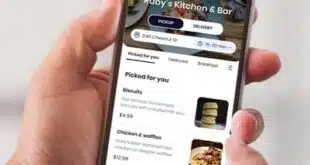With competition heating up in the market for person-to-person payments, Fiserv Inc. reports its 3-month-old ZashPay service is making headway with client financial institutions. The service now claims some 400,000 registered users, while more than 400 banks and credit unions have signed on to offer it, with 100 of those having gone live, Steve Shaw, director of strategic marketing for electronic banking services at Fiserv, tells Digital Transactions News.
Brookfield, Wis.-based Fiserv, a major provider of banking and payments technology, launched ZashPay in July with 200 financial institutions already signed up but with a roster of heavy-duty rivals to contend with. While Fiserv enjoys a built-in advantage with 3,100 client institutions for its bill-pay processing service, companies like PayPal Inc., Obopay Inc., and CashEdge Inc. have been active in marketing P2P payment capabilities to banks.
Only this week PayPal announced that USAA Federal Savings Bank and Discover Financial Services have adopted its P2P service, which relies on an application programming interface it introduced last year as part of its move to open its payments platform outside developers. More announcements may be forthcoming, as PayPal officials claim to have signed on a “significant” number of clients so far (Digital Transactions News, Oct. 19). Meanwhile, mobile-payments provider Obopay enables card-based payments on the P2P offering it began marketing in May, and last week CashEdge added a cash option for recipients through a deal it cut for its Popmoney service with money-transmitter MoneyGram International.
Shaw says now that ZashPay if off to a fast start, Fiserv is looking at enhancements, as well. A mobile application for the iPhone is in the works and should be available by year’s end, he notes. And while transactions are settled currently through the automated clearing house, Shaw says the company is looking into adding the ability to send payments real-time through the Accel-Exchange electronic funds transfer network, which handles PIN debit transactions. Fiserv owns Morris Plains, N.J.-based Accel-Exchange. With ACH settlement, most ZashPay transactions settle the next day. But consumers “like immediacy, they want real time,” Shaw says. “Tomorrow is not soon enough for some people.”
For small businesses and merchants, Fiserv is also looking into leveraging ZashPay and the ACH to replace many of the paper checks these businesses accept today. This service would be linked to an online-invoicing facility that would allow entrepreneurs to serve bills and receive payments electronically. And card-based ZashPay payments are also on the “road map,” Shaw says. This would allow senders to fund payments with either credit or debit cards but would require Fiserv to forge a relationship with a credit card network to go along with Accel-Exchange on the debit side. This arrangement would also allow ZashPay to process at least some card-based payments for merchants that don’t have merchant accounts, Shaw points out. “P2P is phase one of many phases,” he says.
With ZashPay, users can send money to anyone who has a bank account, either by using their bank’s online-banking program (if the bank supports ZashPay) or by using the ZashPay Web site. Senders enter a mobile-phone number or e-mail address for the recipient, along with an amount and a message. Recipients get either an e-mail or a text message telling them they have money and how to claim it. Those who are not registered users are prompted to sign up. Transactions are free to recipients. Senders may or may not be charged a fee by their bank. Shaw won’t disclose Fiserv’s fee to client institutions but says it slides downward with volume and is “less than 50 cents.” The significance of this lies in the fact that the ZashPay software comes with a default fee setting of 50 cents to the sender, Shaw says. Banks can then adjust this to any amount they determine, including zero.
While Fiserv expected ZashPay to be used chiefly for smaller transactions such as payments to babysitters or shares of dinner tabs, this is not what the company has seen in the early going. Instead, tickets are averaging $150, indicating that people are instead using the service for such payments as textbook fees for children at college or fees to contractors like painters or landscapers, Shaw notes.
Usage is also more frequent than Fiserv expected, Shaw says, with those who have adopted the service making three to four payments a month.





